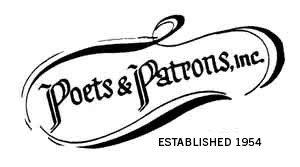July 2022
Rasma Haidri’s poems and essays appear in Action Spectacle, Under the Radar, Prairie Schooner, Sycamore Review, and Fourth Genre, among other journals and anthologies in the US, UK, Norway, India, Hong Kong, and UAE. She is the author of a poetry collection, As If Anything Can Happen, and three textbooks. Recognitions for her writing include the Southern Women Writers creative non-fiction award, the Wisconsin Academy of Arts, Letters & Science poetry award, Western Michigan University’s Third Coast Conference prize for fiction, NewVerseNews’ Best of the Net nomination, Riddled with Arrow’s Ars Poetica prize, and EasyStreet magazine’s Great American Sentence award. Read more ⟶
When did you begin writing poetry?
I started writing poetry in earnest around the time my first child was born, when I was thirty. As a teenager, I went through an “I am dark and profoundly deep” phase of penning thwarted love verses in an archaic cadence which counts, I suppose, as groundwork. As a child, I was drawn to the table where my mother produced poems with a sleight of hand as if pulling them out of the air or a hat. I admired her as a poet and didn’t dare aspire, so I sat drawing Perky the deer and imagined myself an artist.
What triggered your interest in creating poems?
You know those moments that catch you off guard and cause you to do a double-take as if the scene is potent with more than the sum of its parts, but you can’t put your finger on it? The only way I could unpack the significance of what caught my attention in those slices of time was to write until the experience was distilled into a poem. Those moments are poems in the waiting, and I felt both a compulsion and an obligation to capture and express them. To me, writing poems is very much like photography, which I have enjoyed dabbling in.
Who are your favorite poets?
Poets I return to are (off the cuff in no particular order): Jane Kenyon, Sylvia Plath, T. S. Eliot, William Blake, Jane Hirschfield, Jorie Graham, Donald Hall, Matthew Dickman, Paul Zimmer, Christina Rossetti, Susan Elbe, Carl Sandburg, Philip Levine, Claudia Emerson, Sue Wicks, Rumi…
What inspires you? Other poets, painting? music?
Reading other poets will spark poems. Often I interrupt my reading and start writing. Going to live literary events will spark writing, too. Something with words in it.
Where have you published?
Action Spectacle, Under the Radar, Anti-Heroin Chic, Switched-on Gutenberg, I-70 Review, Sycamore Review, Muzzle Magazine, Prairie Schooner, New Verse News, Runes, Kalliope, Fine Madness, Earth’s Daughters, Passages North… are some of the journals, as well as a bunch of anthologies, and my first book. My second book is currently looking for a publisher, and my third is about to begin knocking on doors as well.
© Rasma Haidri
Are you in a feedback group that meets regularly? If so, How often?
I was in a group in Madison, Wisconsin, that met weekly for over ten years. They still meet, but I moved away in 1999. That group was my education. I haven’t found anything like it since. I wish I could. (I wrote about us in The Writing Group Book, Chicago Review Press.)
We know every poem is different but--on average--how many revisions does one of your published poems require?
I keep revising them even after they are published. I thought there was something wrong with me until I asked Donald Hall at a reading in Madison how he knew when he was finished revising a poem. He paused, looked down at The Old Life in his hands, and said, “I just revised one of these as I read it.” There does come the point when I believe a poem is ready to be published, usually after ten to thirty revisions, which can happen over half as many years. I’m a slow writer.
Do you gear some of your work toward performance poetry rather than the written form? Why or why not?
I don’t gear it for performance, but I tend to write auditory poetry rather than visual, which lends itself to being read aloud. A friend in Madison used to say that we owe it to our poetry to give public readings. As an introvert, I made a conscious effort to adopt that view. I have done many readings. I like to sing and did make songs of a few poems once with the aim to do it with the entire collection, but for various reasons abandoned the project. A blues duo performed poems from my second collection at my wedding, which was fantastic. I knew the poems could be set to music, but only qualified song artists could make it happen.
How long might you struggle with a poem that doesn’t seem to want to come together?
Too long, unfortunately. I tend to beat dead horses. But I can also be impatient and not struggle enough. I think the hard work of being a poet is to walk that line between perseverance and recognizing that I don’t have anything to say. Or that the struggle is making a rut, not progress. Over-editing can kill the poem. When I discovered creative non-fiction, I learned that a struggling poem might want a prose form. That was liberating.
Is there a special person in your life you’re inclined to share your work with? Explain.
In her wedding vows, my wife said: “I will be your reader,” and she is. I cannot know how a piece is working until she reads it to herself and aloud to me, and we discuss it. My daughter has been a keen reader and critic of my poetry since she was a child. She is currently helping me edit my third collection.


